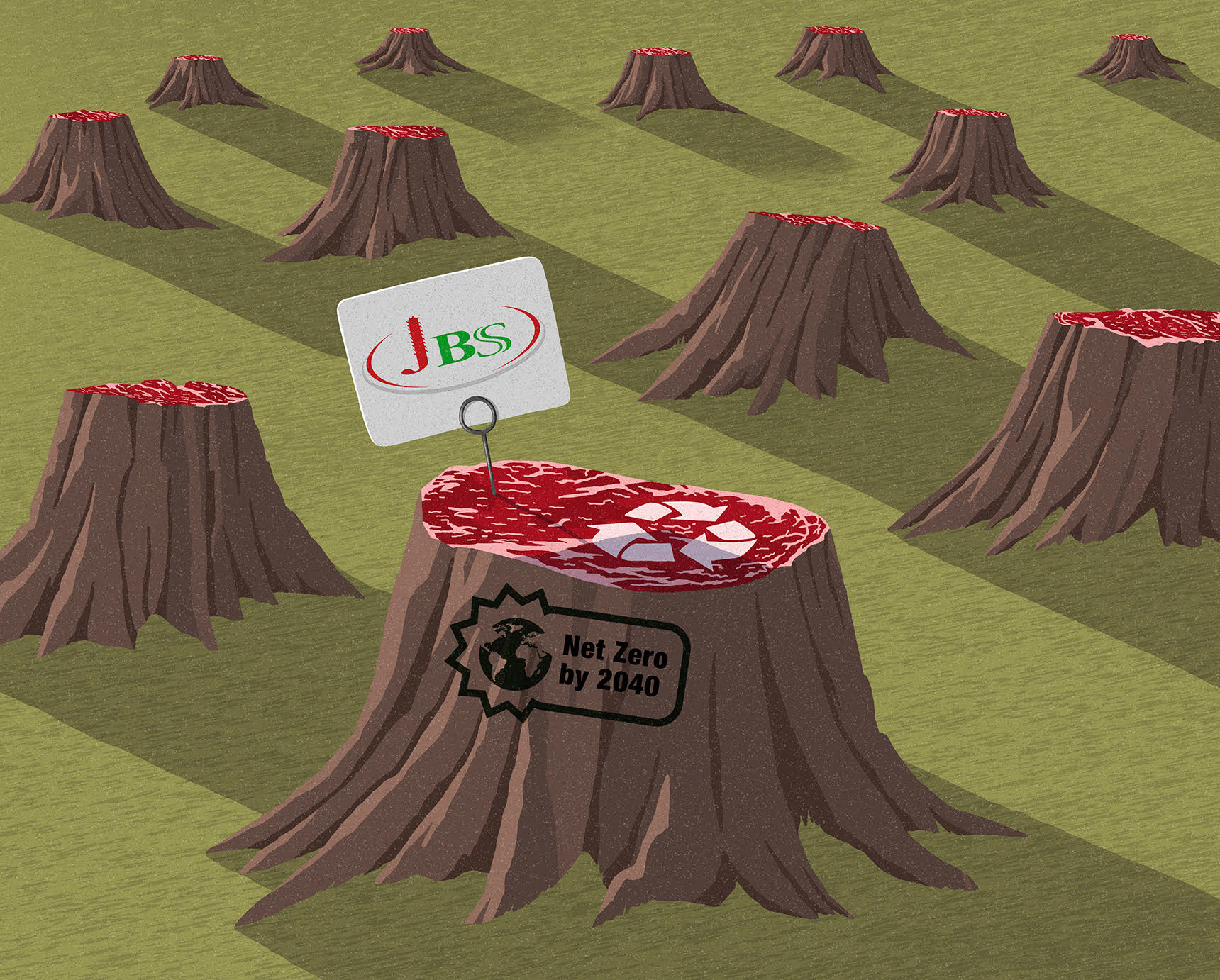
World’s largest meat company, JBS, increases emissions by 51% in five years despite 2040 net zero climate target, continues to greenwash its huge climate footprint
October 2022 Update: Joint Statement by IATP, Feedback and DeSmog on JBS’ response to our research published in April 2022 on its GHG emissions
JBS, which is the largest meat processor in the world, increased its annual greenhouse gas emissions by a whopping 51% between 2016 and 2021, from 280 million metric tonnes to 421.6 million metric tonnes (mmts), based on the Institute for Agriculture and Trade Policy (IATP)’s latest calculations.[1]
This is more than fossil fuel giant Total’s 2020 emissions.[2] It is more than Italy’s annual climate footprint and 95% of France’s (at 443 mmt). As JBS prepares for its annual general meeting (AGM) on 22 April in São Paulo, this briefing outlines how the company’s “green” claims fail to live up to reality and the meat giant continues to mislead in its communications with investors and the public.
[1] Using the UN Food and Agriculture Organization’s GLEAM model, GRAIN and IATP calculated JBS’s 2016 emissions in Emissions Impossible 2018. IATP has used the same methodology to update the company’s 2021 emissions. See Dataset here.
[2] Total Energies emissions 2020: 417 MtCO2e; Richard Heede, Climate Accountability Institute, personal communication, 9 April 2022. See also, our Dataset, “Comparisons” worksheet comparing JBS’s emissions with that of other carbon majors and countries.
Read More Download Media briefWhat can you do next?
Feedback never accepts donations from corporate organisations. To achieve our goal of a food system that nourishes us and the planet, we need your help.
DONATE WHAT YOU CAN NOWDo you believe everyone should have access to nutritious, delicious food - without trashing our planet in the process? Sign up to our mailing list to get the latest on our campaigns.
JOIN THE MAILING LISTFollow us on Facebook for updates on our campaigns and opportunities to get involved.
Get social